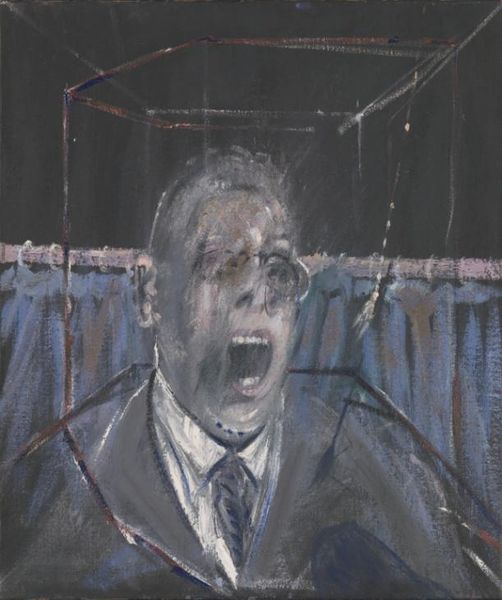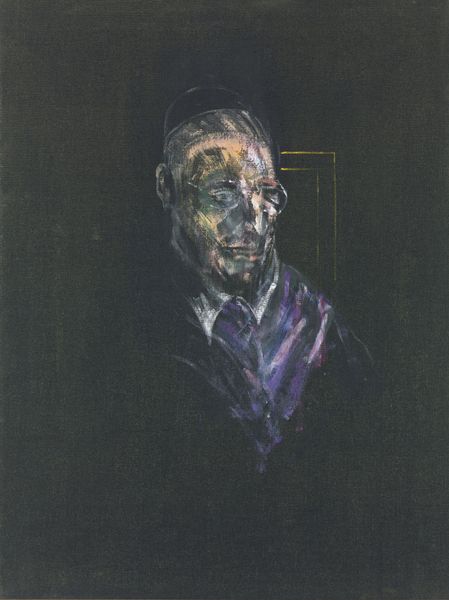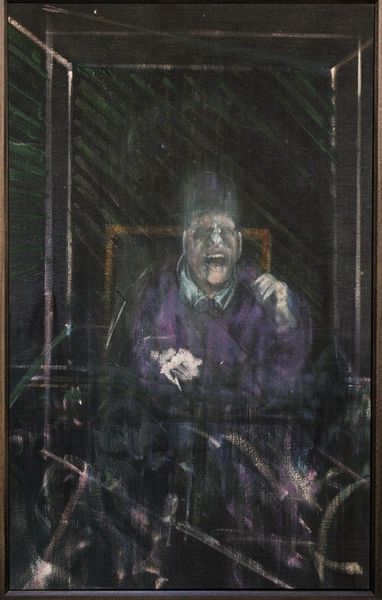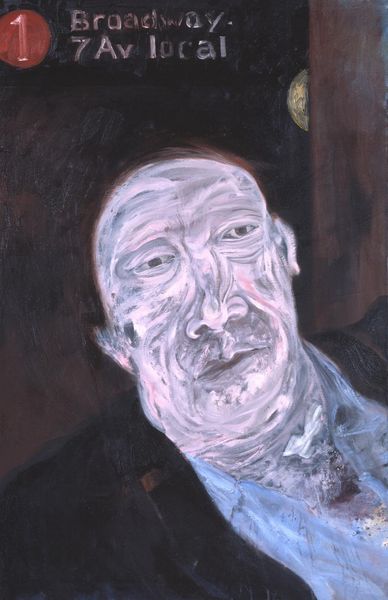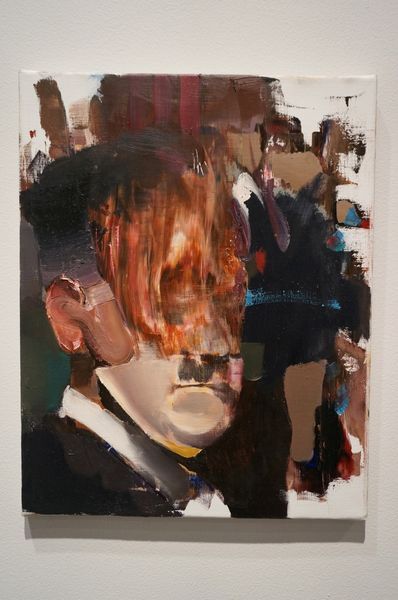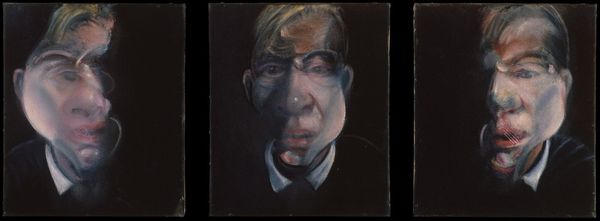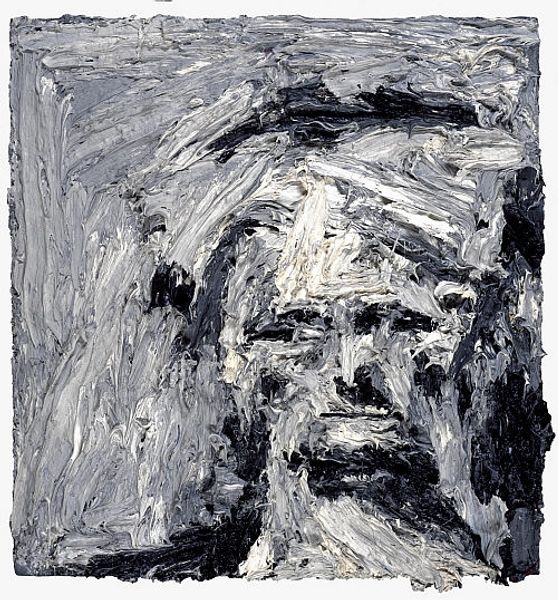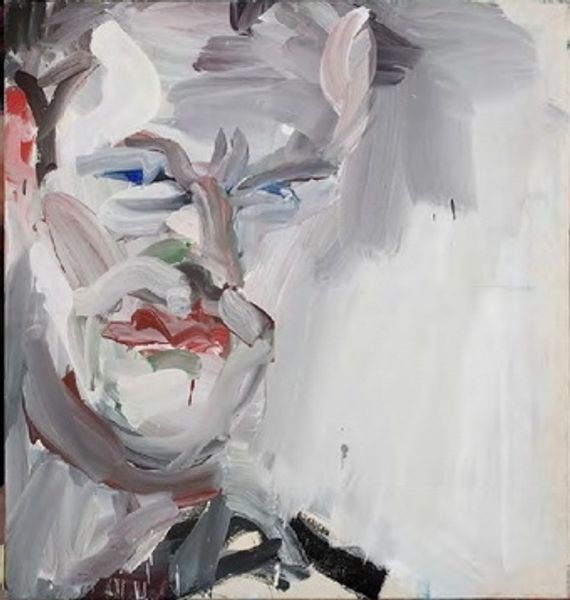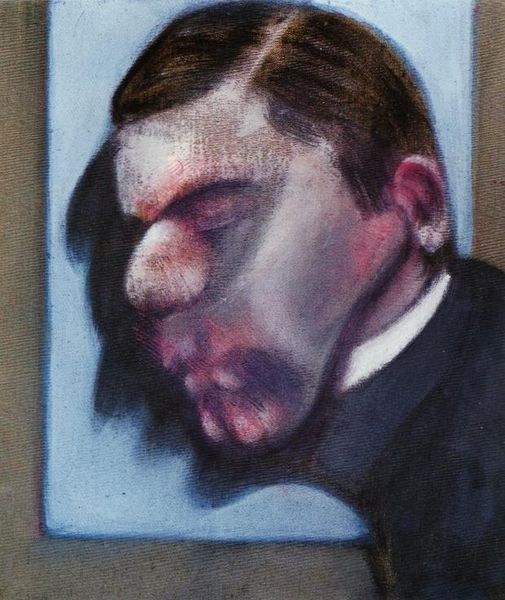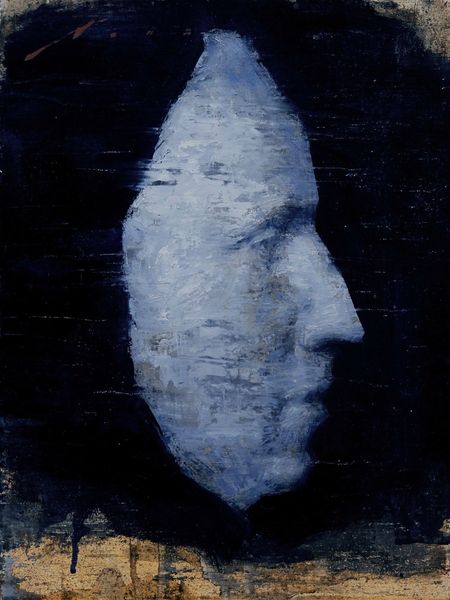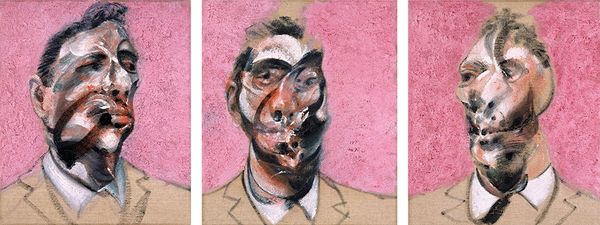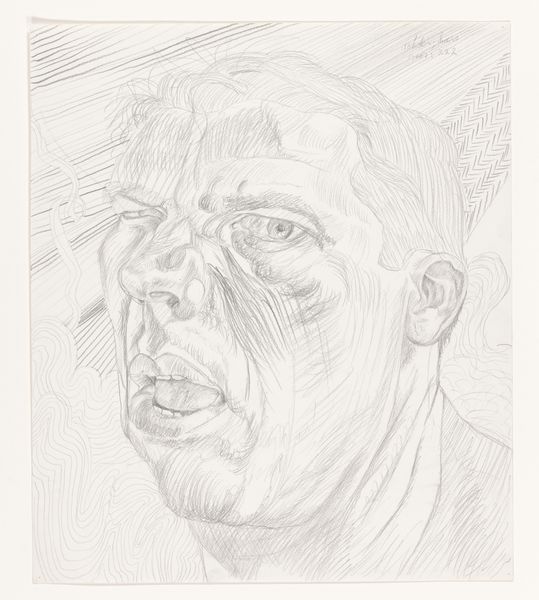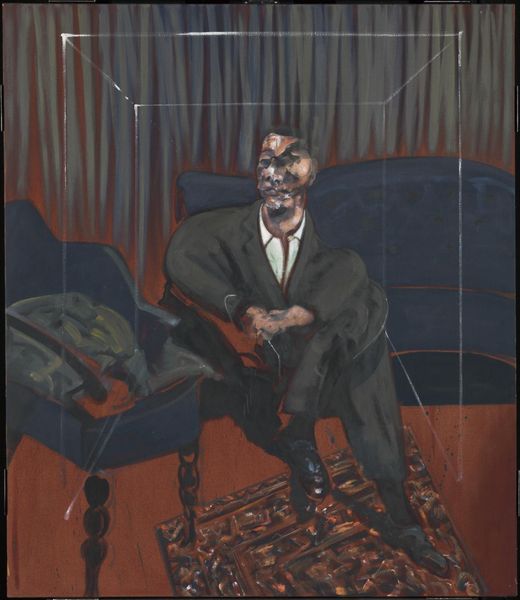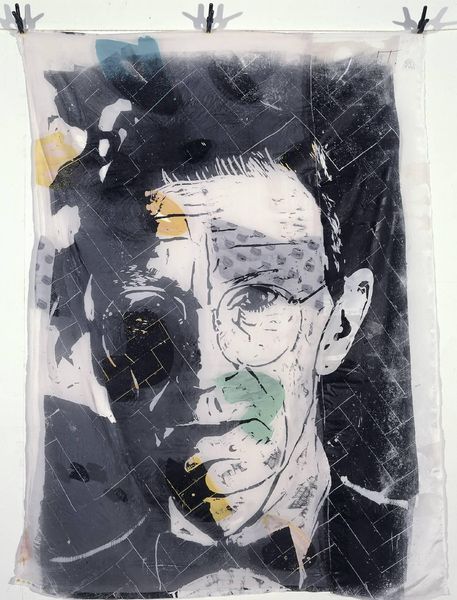
#
cyberpunk
#
abstract painting
#
generative art
#
sculpture
#
possibly oil pastel
#
derelict
#
neo expressionist
#
abstract character
#
expressionist
#
digital portrait
Copyright: Francis Bacon,Fair Use
Curator: Well, aren't these visages captivating? These are Francis Bacon's *Three Studies of the Human Head*, painted in 1953. What strikes you most upon first glance? Editor: A primal scream, really. Raw, visceral…a silent scream trapped within the confines of these canvases. There’s such profound anguish etched into each face, particularly the central one with its gaping mouth. It’s deeply unsettling. Curator: Anguish indeed! He called them self-portraits. Though I imagine they were more about summoning a feeling—an inner howl given shape, if you will. Bacon wrestled with his own demons; a life peppered with chaos. The way he captures that intensity with these violent brushstrokes… Editor: Absolutely. It’s impossible to ignore the socio-political context. Consider 1953—the Cold War, existential dread permeating society, the suffocating norms of conformity… Bacon's figures seem to be rebelling against an invisible oppressor. This defiance becomes almost palpable. Are they not, in some sense, reflections of societal anxieties pushed to their breaking point? Curator: Oh, undoubtedly! Bacon rejected the sugary sweetness of tradition. He grabbed life by the scruff, painting the unpleasant bits. Did you know he often painted with materials others might find repugnant? Like the dust bunnies he found in his studio and, um, sometimes bodily fluids? Editor: (Slightly aghast) That’s…certainly one way to embrace reality. And those drips – they really hammer in a feeling of distortion, a visual equivalent of psychological fracture. Are those allusions to religious themes here, with a sort of triptych? Curator: Possibly so. You might notice similar arrangements throughout religious paintings and works, perhaps of crucifixions. Whether deliberate or not, I am less inclined to state one thing or another. It rather comes down to seeing what one wants to see. Bacon loved accidents. He would hurl paint at a canvas and say: *If the accident works, keep it*. Editor: "The accident works," quite apt for these. There’s something revolutionary in accepting those unexpected elements, to disrupt the veneer of control. Perhaps he's reminding us of the inherent chaos of the human condition and maybe there's beauty in acknowledging its messy truth? Curator: Precisely. It certainly reminds one to simply exist. Free from social conditioning. Embrace life, both its splendor and squalor! And sometimes, let out a little scream, just for the heck of it. Editor: Agreed, even if screams of dissent or despair. We need reminders that confronting the ugliness may be crucial for seeing—and building—a better world.
Comments
No comments
Be the first to comment and join the conversation on the ultimate creative platform.
